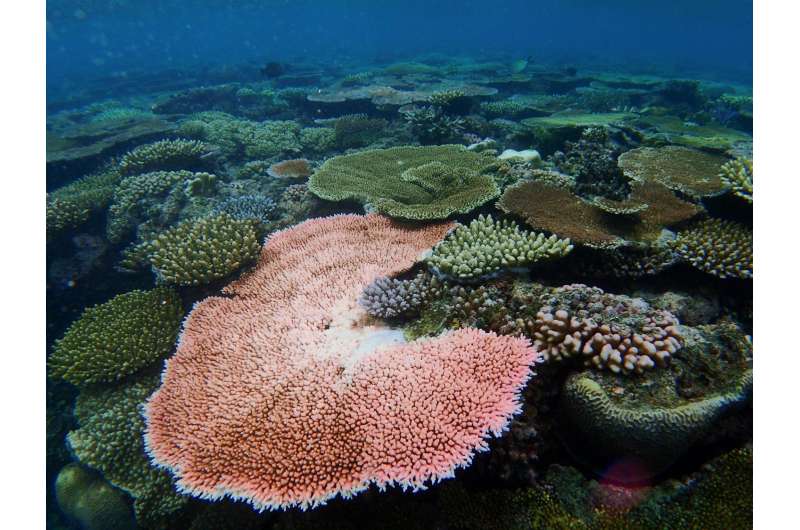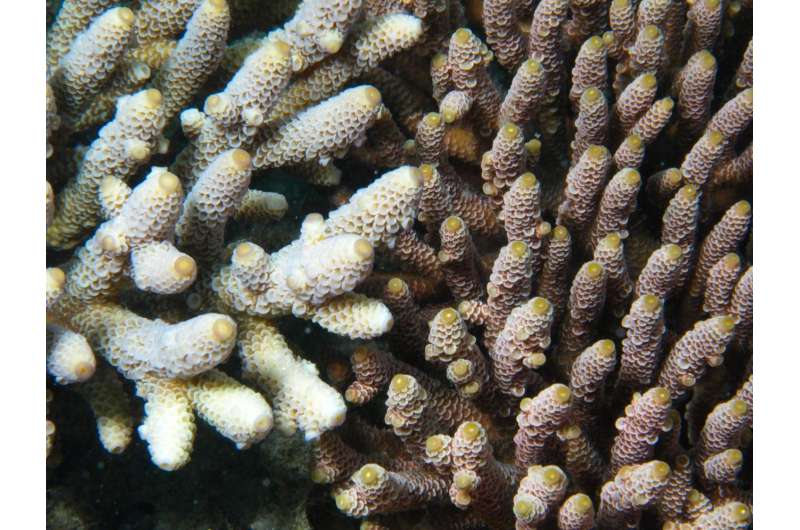Coral stress test found in the genes

Unique sections of coral DNA can indicate a higher tolerance to environmental stress, researchers have revealed for the first time.
The findings could act as a guide for novel reef restoration and management programs including selective breeding for corals and assisted migration to boost populations of more stress-tolerant corals.
The research has been published today in the journal Science Advances and was led by former PhD student at the Australian Institute of Marine Science, AIMS@ JCU, Dr Young Jin and Professor Madeleine van Oppen from the University of Melbourne and the Australian Institute of Marine Science (AIMS).
It is known from studies on a range of organisms, including corals, that stressors such as high water temperature, poor water quality and even pathogen infection, produce an increase in damaging, highly reactive oxygen molecules (free radicals) inside the tissues.
But the ability to tolerate environmental stress varies between individuals, so the team set out to find the most stress-tolerant of the common reef-building coral Acropora millepora.
The team took coral tissue samples from reef sites along the Great Barrier Reef that were experiencing bleaching, where microalgae living within coral polyps die off, leaving the tissues white. They also simulated bleaching conditions in the laboratory by exposing corals to high water temperatures.

The genomes of both the wild and laboratory corals were interrogated for environmental stress 'biomarkers', unique sections of DNA, that correspond with tolerance to the free radicals produced from environmental stress.
One of the genetic markers that was unveiled accounted for an impressive ~30% of the variation observed in the colonies' ability to deal with the free radicals.
Professor van Oppen said "corals that have a better capacity to deal with environmental stress can be identified from their individual genetic makeup."
"The genetic markers we identified can be easily used to create fine-scale distribution maps of coral stress tolerance, which may be informative for designing Marine Protected Areas for coral conservation," she added.
"In the future, reef managers may consider moving corals from one reef area to another, or to selectively breed more tolerant corals by cross-breeding the most stress tolerant ones. The genetic identification of stress tolerant colonies can guide these processes to ensure the most suitable genotypes are used."
More information: "Genetic markers for antioxidant capacity in a reef-building coral," Science Advances, advances.sciencemag.org/content/2/5/e1500842
Journal information: Science Advances
Provided by University of Melbourne





















